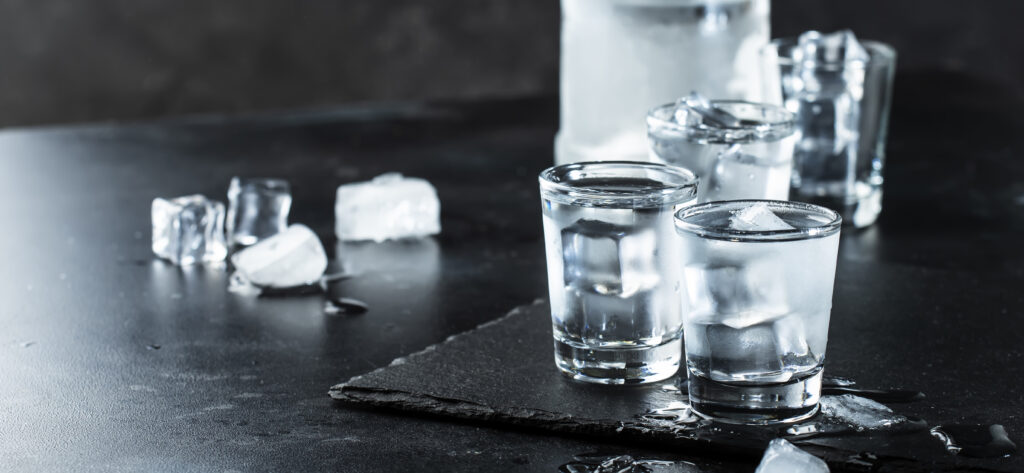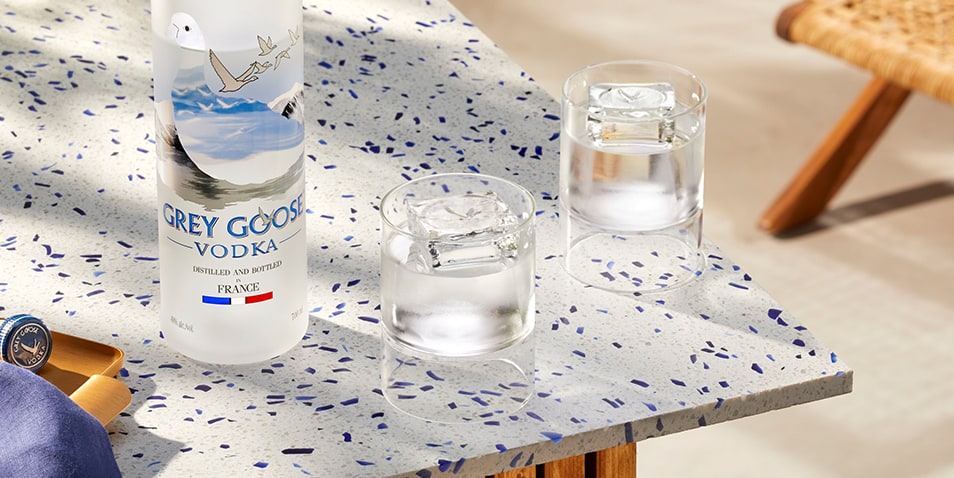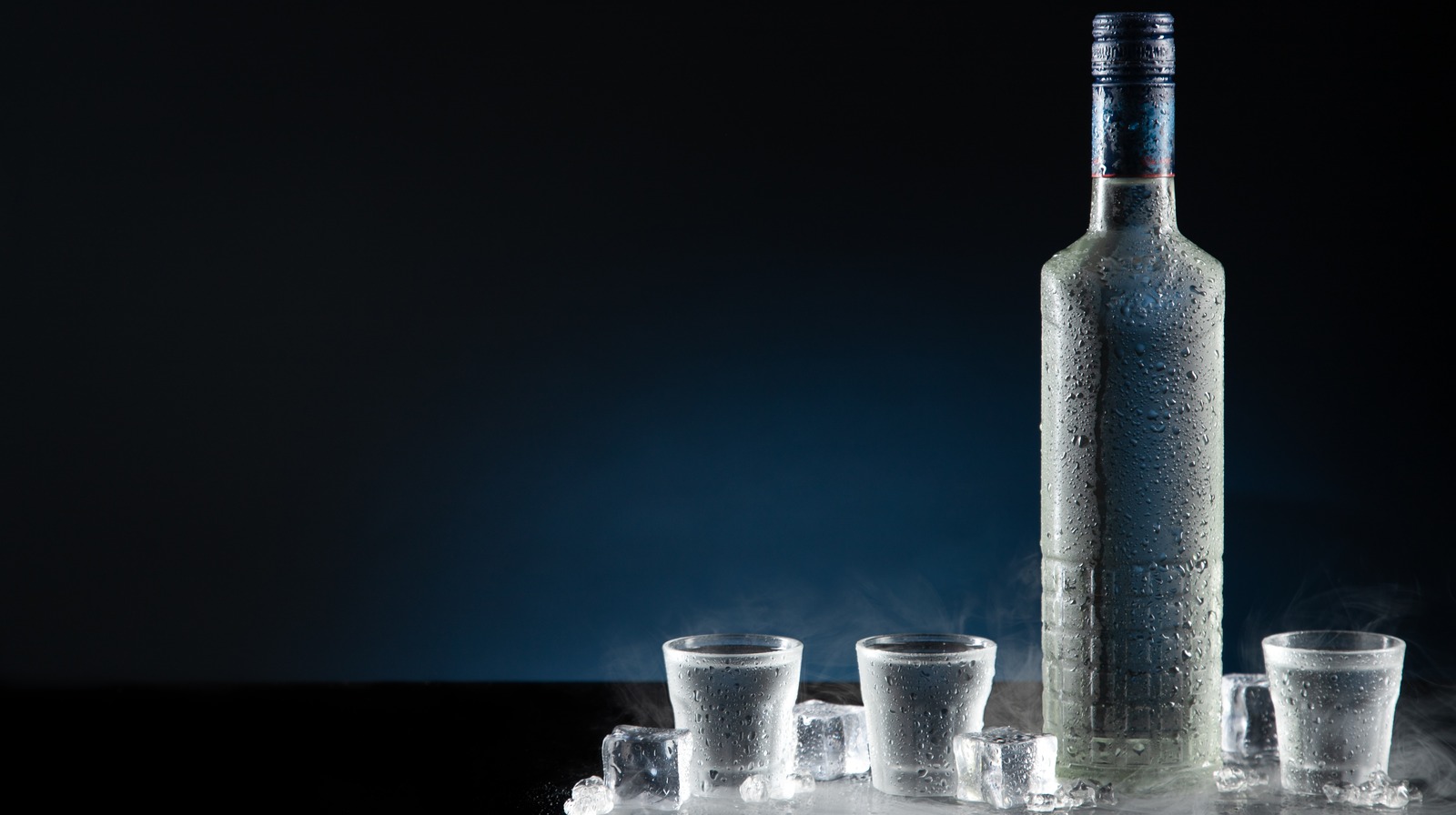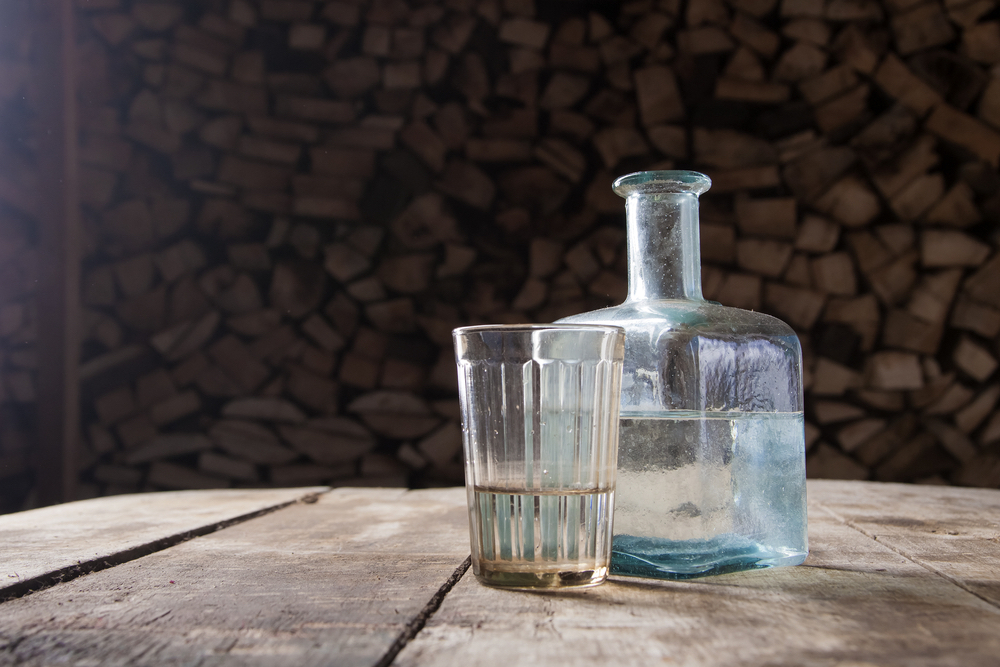Understanding Vodka Shelf Life

Understanding Vodka Shelf Life: Vodka, with its high alcohol content, has an indefinite shelf life when stored properly. While unopened vodka can last for 10 to 20 years or even longer, it may not remain in peak condition forever. Factors such as light, temperature, and exposure to air can affect the taste and quality of vodka over time. However, it is important to note that vodka does not expire in the same way as perishable food items. With proper storage and handling, vodka can be enjoyed for a long time without spoiling or going bad.
What Factors Affect Vodka Shelf Life
Several factors can affect the shelf life of vodka. Light exposure can degrade the quality of vodka, so it is best to store it in a dark and cool place. Temperature fluctuations should also be avoided, as extreme heat or cold can impact the taste and texture of the vodka. Exposure to air can cause oxidation, leading to changes in flavor and aroma. It is important to keep the bottle tightly sealed to minimize air contact. Additionally, the quality of the ingredients used and the production process can also influence the shelf life of vodka.
How To Properly Store Vodka For Longevity
To ensure the longevity of vodka, it is important to store it properly. Keep the bottle in a cool and dark place, away from light and temperature fluctuations. A pantry or cellar works well. It is also crucial to seal the bottle tightly to minimize air exposure, which can cause oxidation. Avoid storing vodka near strong-smelling substances, as it can absorb odors. Additionally, refrain from storing vodka in the freezer for extended periods, as it can affect the quality and taste. Following these storage guidelines will help preserve the flavor and freshness of your vodka.
Signs Of Spoiled Vodka

When assessing whether vodka has gone bad, there are several signs to look out for. One indication is a change in color, such as discoloration or cloudiness. Another sign is an off odor, which can be described as smelling musty, sour, or like rubbing alcohol. Additionally, a spoiled vodka may have an unpleasant taste, such as a bitter or harsh flavor. If you notice any of these signs, it’s best to discard the vodka as it may have been altered or spoiled, affecting its quality and taste.
Identifying Off Flavors In Vodka
When assessing the quality of vodka, it is essential to pay attention to any off flavors. Off flavors in vodka can be detected through the sense of taste and often indicate that the vodka has gone bad. These flavors may present themselves as bitterness or harshness on the palate. If the vodka tastes sour or has a musty or unpleasant aftertaste, it is a clear indication of spoilage. It is important to trust your taste buds and not consume vodka with off flavors as they can significantly affect your drinking experience.
Visual Cues Of Spoiled Vodka
Visual cues can provide valuable information about the quality of vodka. When inspecting the appearance of vodka, watch out for any changes in the liquid. Spoiled vodka may appear cloudy, discolored, or have sediment floating in it. Additionally, look for signs of crystallization around the cap, which could indicate exposure to air and potential spoilage. These visual cues can help you determine if your vodka has been altered or compromised in any way, and it is important to avoid consuming vodka that shows these signs of spoilage.
Does Vodka Expire?

Vodka does not technically expire in the sense that it becomes unsafe to consume. As long as it is properly stored, unopened vodka can remain drinkable indefinitely. However, over time, the quality and taste of vodka may deteriorate. It is recommended to consume vodka within 1-2 years of opening for the best flavor. Factors such as exposure to light, temperature fluctuations, and air can all affect the quality of vodka over time. It is important to assess the appearance, smell, and taste of vodka to determine if it has gone bad or is still suitable for consumption.
Exploring The Expiration Concept Of Vodka
Vodka does not technically expire in the sense that it becomes unsafe to consume. As long as it is properly stored, unopened vodka can remain drinkable indefinitely. The concept of expiration for vodka is more related to the deterioration of quality and taste over time. Factors such as exposure to light, temperature fluctuations, and air can all affect the quality of vodka. It is important to assess the appearance, smell, and taste of vodka to determine if it has gone bad or is still suitable for consumption. Properly stored and well-preserved vodka can retain its flavor for an extended period.
Determining If Vodka Can Spoil Over Time
Determining if vodka can spoil over time requires assessing its quality and taste. If vodka has been exposed to factors such as light, temperature fluctuations, and air, it may have deteriorated in flavor. Signs of spoiled vodka include a foul smell, a bitter or metallic taste, or a cloudy appearance. It is important to note that vodka does not technically expire and is still safe to consume even if it has gone bad. Trust your senses and discard any vodka that shows signs of spoilage.
How Long Can Vodka Last?

When stored properly, unopened vodka bottles can last indefinitely. The high alcohol content acts as a preservative, preventing the growth of harmful bacteria or spoilage. However, once a bottle of vodka is opened, its shelf life may be reduced. On average, opened vodka bottles can last for several years if stored in a cool and dark place, away from sunlight and extreme temperatures. It’s important to note that over time, the taste and quality of vodka may deteriorate, but it is still safe to consume.
Assessing The Shelf Life Of Unopened Vodka Bottles
Unopened vodka bottles can have an indefinite shelf life if stored properly. The high alcohol content in vodka acts as a natural preservative, inhibiting the growth of bacteria or spoilage. While unopened vodka may last for years, it is important to note that the flavor and aroma may gradually change over time. It is recommended to store unopened vodka bottles in a cool and dark place, away from sunlight and extreme temperatures, to maintain their quality for as long as possible.
Guidelines For The Storage Duration Of Opened Vodka Bottles
Once a vodka bottle has been opened, it is important to follow certain guidelines to ensure its quality and freshness. After opening, vodka should be tightly sealed and stored in a cool and dark place, away from direct sunlight and extreme temperatures. It is recommended to consume opened vodka within a reasonable timeframe to maintain its flavor and aroma. While unopened vodka can last indefinitely, opened bottles are best consumed within one to two years for optimal taste. Remember to check for any signs of spoilage before consuming opened vodka.
Ways To Extend Vodka Shelf Life

To extend the shelf life of vodka, there are several steps you can take:
- Keep it sealed: After opening a bottle of vodka, always ensure that it is tightly sealed to prevent air from entering. Oxygen can lead to oxidation and affect the taste and quality of the vodka.
- Store in a cool place: Keep your vodka in a cool and dark environment to avoid exposure to sunlight and extreme temperatures. These factors can cause the vodka to deteriorate at a faster rate.
- Avoid temperature fluctuations: Fluctuations in temperature can negatively impact the vodka. It is best to store it in a consistent temperature environment.
- Keep away from strong odors: Vodka has a neutral flavor and easily absorbs surrounding odors. Store it away from strong-smelling substances to maintain its original taste.
By following these guidelines, you can prolong the freshness and quality of your vodka, ensuring a top-notch drinking experience.
Tips For Preserving Vodka Quality
To preserve the quality of your vodka, there are a few tips to keep in mind. Firstly, always ensure that the bottle is tightly sealed after each use to prevent oxidation. Secondly, store your vodka in a cool and dark place, away from direct sunlight and extreme temperatures. Additionally, try to minimize temperature fluctuations by maintaining a consistent storage environment. Lastly, keep your vodka away from strong odors to prevent it from absorbing unwanted flavors. By following these tips, you can extend the lifespan of your vodka and enjoy a superior drinking experience.
Methods For Prolonging The Lifespan Of Your Vodka
To prolong the lifespan of your vodka, there are a few methods you can follow. Firstly, make sure to always keep the bottle tightly sealed after each use to prevent oxidation. This will help maintain the flavor and quality of the vodka. Secondly, store your vodka in a cool and dark place, away from direct sunlight and extreme temperatures. This will prevent any unwanted changes in taste or texture. Lastly, avoid exposing the vodka to strong odors, as it can absorb them and affect the overall taste. By following these methods, you can enjoy your vodka for a longer period of time.
Conclusion

In conclusion, vodka has an impressive shelf life, whether it is opened or unopened. When stored properly in a cool and dark place, away from direct sunlight and extreme temperatures, vodka can maintain its quality and flavor indefinitely. While the option to freeze vodka is available, it is not necessary for preservation. By following the recommended storage guidelines and sealing the bottle tightly after each use, individuals can ensure that their vodka remains fresh for an extended period. Remember to consult the manufacturer’s instructions for specific details regarding shelf life.
Summary Of Vodka Shelf Life Information
Vodka has an impressive shelf life, whether it is opened or unopened. When stored properly in a cool and dark place, away from direct sunlight and extreme temperatures, vodka can maintain its quality and flavor indefinitely. There is no expiration date for vodka, but its taste may be altered over time due to exposure to light, temperature fluctuations, and air. It is recommended to seal the bottle tightly after each use and follow the manufacturer’s instructions for specific details regarding shelf life. Overall, vodka can last for years or even decades if stored correctly.
Practical Advice For Ensuring Your Vodka Stays Fresh
To ensure your vodka stays fresh and maintains its quality, there are a few practical tips you can follow. First, always store your vodka in a cool, dark, and dry area away from sunlight and heat. This will help prevent exposure to light and temperature fluctuations, which can affect the taste and longevity of your vodka. Additionally, make sure to seal the bottle tightly after each use to minimize air exposure. Following these simple guidelines will help ensure your vodka stays fresh and enjoyable for a longer period of time.
FAQ About Can Vodka Go Bad: Assessing Vodka Shelf Life
Q: Can vodka go bad?
A: Vodka does not expire or go bad in the same way that perishable items do. However, it can lose its quality and flavor over time.
Q: How long does vodka last?
A: Unopened vodka can last indefinitely if stored properly. Once opened, it can last indefinitely, but the quality may decline over time.
Q: How to tell if vodka has gone bad?
A: Vodka that has gone bad may have changes in color, odor, or taste. Mold growth or cloudiness in the bottle are also signs of spoilage.
Q: How should vodka be stored?
A: Vodka should be stored in a cool, dark place away from direct sunlight and heat sources. Keeping the bottle tightly sealed can help maintain its quality.
Q: Can freezing vodka extend its shelf life?
A: Freezing vodka does not necessarily extend its shelf life, but it can help maintain its quality by preserving its flavors and preventing evaporation.
Q: Can drinking expired vodka be harmful?
A: Drinking slightly expired vodka may not be harmful, but it may not taste as good. However, if vodka shows signs of spoilage, it is best to discard it to avoid any health risks.

Let’s be honest—Parma, OH has its fair share of neighborhood joints, as do the surrounding Cleveland suburbs. There are bar food offerings, happy hour, and an enjoyable environment in which to watch the Tribe and Browns.
With Sidekicks Tavern, though, you get all that and then some. You get a bar menu, a warm staff, and a great group of fun customers to hang with.
In the words of one of our favorite regulars, Sidekicks is a hidden gem.